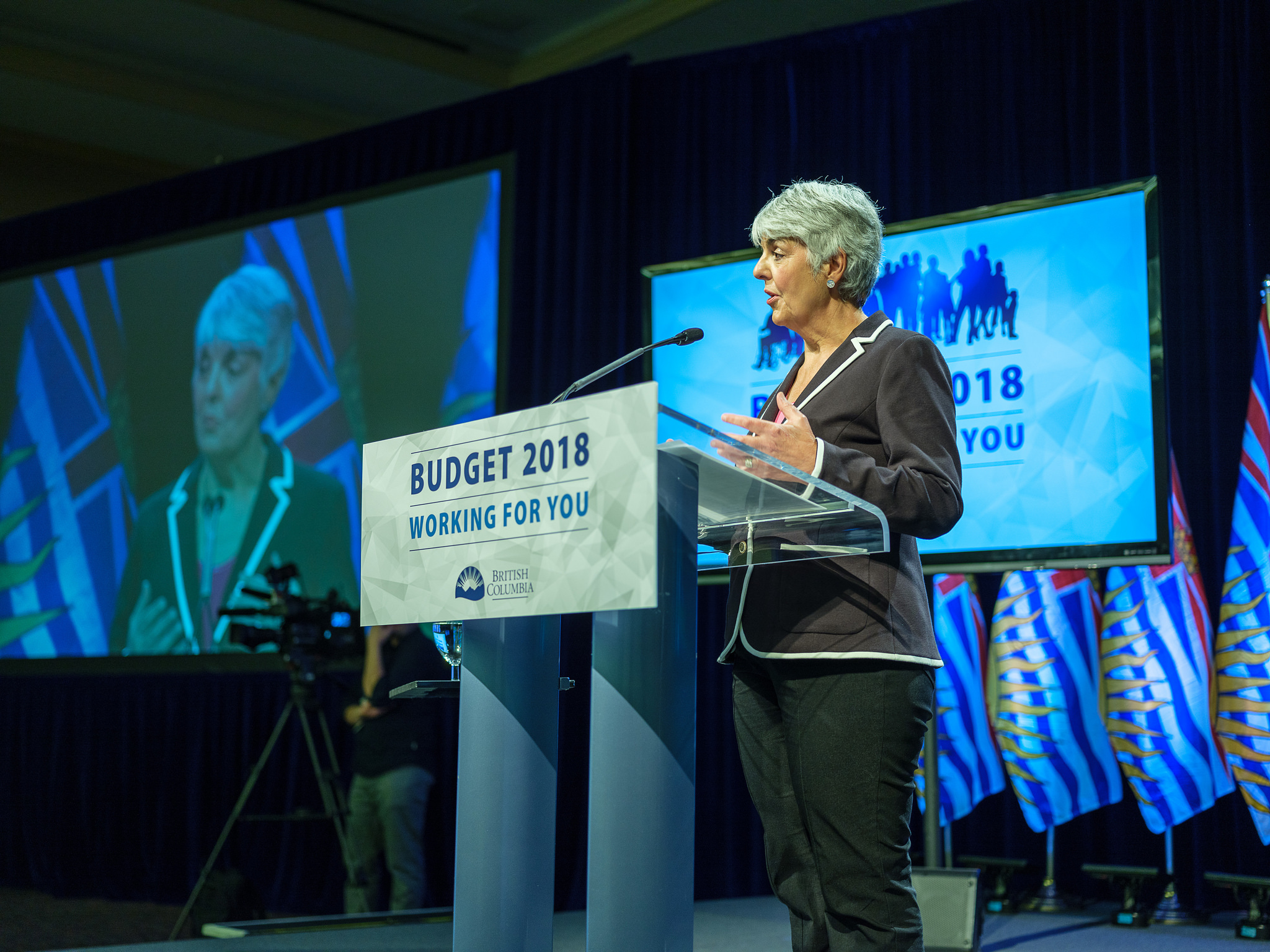
Bob Mackin
Canada’s provincial governments will try again on May 8 to give away a $60 million jackpot in the nationwide Lotto Max. Plus 52 prizes of $1 million, and the $500,000 Extra.
This, the week after the B.C. Lottery Corp. awarded $30 million to the anonymous winner of the April 25 Lotto 6/49 draw.
The minister responsible for gambling in B.C. is Attorney General David Eby, who is facing a BC Liberal-backed tax revolt in his Vancouver-Point Grey riding for the NDP’s schools surtax on the value of houses over $3 million.
Boosters of this controversial tax contend that those who bought a house before the 21st century and the recent price explosion have figuratively “won the lottery,” because they are now multimillionaires on paper.

Finance Minister Carole James talks to the media in Victoria (BC Gov)
Opponents of the tax include former NDP premier Mike Harcourt, a Point Grey resident whose government backed-off a similar tax in 1993 when Westsiders complained en masse. Harcourt said it will hurt senior citizens, even if they choose to defer their tax bills.
So why not actually tax winners of lottery jackpots, like the United States does, to replace the schools surtax or lessen the blow on those who really cannot afford it?
In the United States, home of the Powerball, winnings $5,001 and above are subject to a 25% federal withholding tax.
California, Florida, Texas and Washington are among a handful of states that do not apply state taxes to lottery prizes. Oregon (8%) and New York (8.82%) do.
Eby didn’t respond to a query on whether his goverment should tax lottery jackpot winners. However, according to the office of Finance Minister Carole James, “this is not being considered.”
Economist Victor Matheson of the College of the Holy Cross in Massachusetts has studied the economics of gambling.
“There is no theoretical economic reason not to tax the award, and the only reason you wouldn’t is for advertising purposes, I think,” Matheson said by email. “There are a handful of places that don’t tax the award, and of course, it also means that if you win Powerball, try to make sure you are living in Texas or Florida at the time instead of California or New York City.”
Diana Gibson, research manager for the Canadians For Tax Fairness, say taxing big gambling winnings “makes sense.”
“They should be treated differently than earnings people have made through working,” Gibson said.
She also said that gambling is associated with social harm and governments need more revenue to deal with that.
In a similar vein, Gibson said, those facing higher property tax bills or applying for deferral because they live in houses worth more than $3 million should be paying extra.
“The people that earn money by the luck of the market, paying a higher tax on that is important,” she said.
Support theBreaker.news for as low as $2 a month on Patreon. Find out how. Click here.











